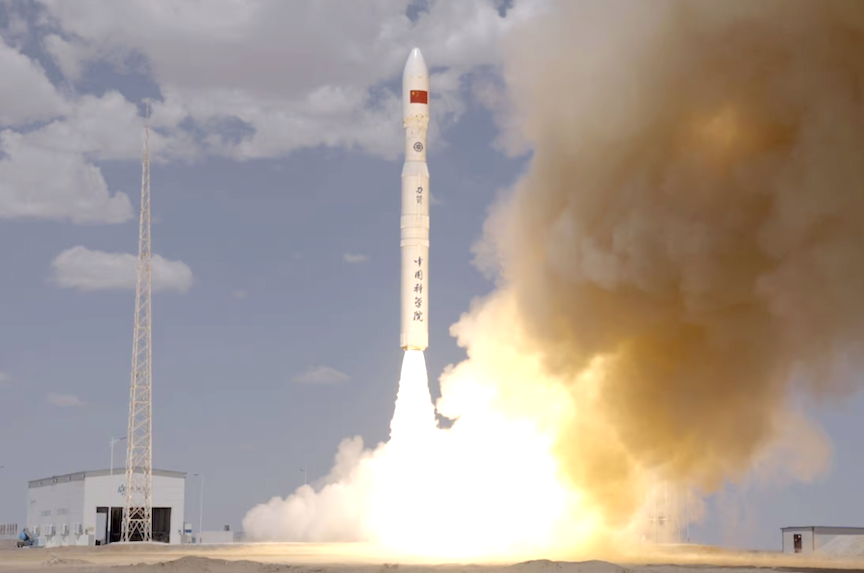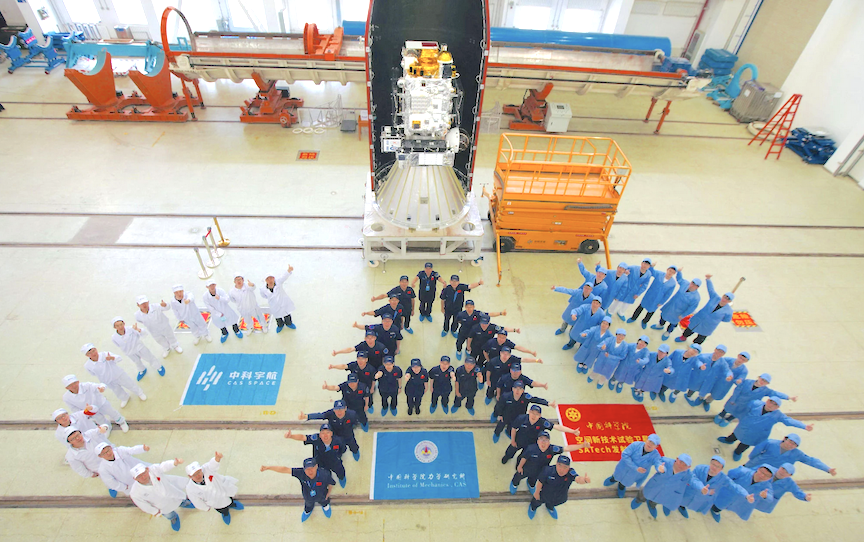
Jinan 1 will conduct key distribution experiments in lower-Earth orbit after a month of testing. More launches planned for near future to support quantum communication for over 100 users around the globe….
China launched a new quantum satellite on Wednesday that could be a first step towards establishing an ultra-secure communications network with global coverage.
It was one of six satellites launched around noon by the Lijian quick response rocket from the Jiuquan Satellite Launch Center in the Gobi Desert, according to Xinhua.
The quantum satellite, developed by the Chinese Academy of Sciences, would conduct quantum key distribution experiments in lower-Earth orbit, the report said.
A quantum key network uses entangled particles to encrypt a message. Any attempt to steal or decode will alter the message physically and alert the receiver, thanks to the law of quantum physics.
It is the second quantum satellite launched by China after it sent the world’s first such satellite, Mozi, into orbit in August 2016.

Called Jinan 1, it weighs less than 100kg — about a sixth of the weight of Mozi — but can generate quantum keys at speeds two or three magnitude higher, the project team said in a statement posted on WeChat.
It said Jinan 1 would enter service after a month of testing and it was “just the first step”. More such satellites would be launched in the near future to support quantum communication for more than 100 users around the globe.
“It is also an important step. It makes China the first country in the world to achieve real-time, satellite-to-ground quantum key distribution with micro-nano satellite and miniaturized ground stations,” the statement said.
China’s first quantum satellite, Mozi, is equipped with what was the most sensitive device when it went into orbit six years ago — it can produce and detect a single photon, or an extremely weak particle of light. The satellite has conducted record-breaking experiments in quantum physics, including proving the feasibility of quantum communication from one continent to another.
But researchers involved in the project say Mozi has its limits. The first generation of space-based quantum communication devices, for instance, can only establish a stable link with the ground at night because the sun produces so much noise that the light signals are drowned out. Also, the bandwidth for quantum key distribution — which is as small as dial-up — restricts communication to voice or low-resolution videos.
The remainder of the article can be found here.
By Stephen Chen in Beijing + FOLLOW
